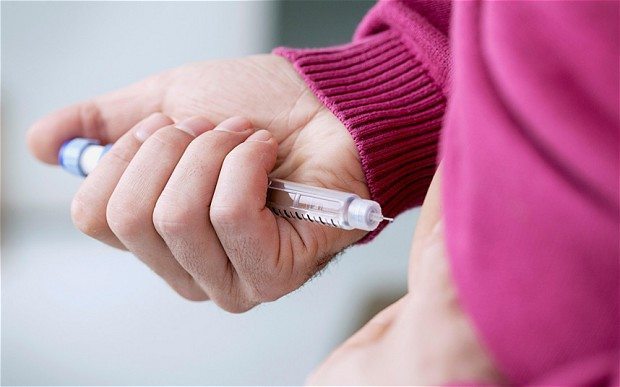
Original article written by Sarah Knapto, Science Editor, for The Telegraph on November 25, 2015. Click here to read the original article.
The end of daily injections for diabetes sufferers could be in sight after scientists showed it is possible to restore insulin production for up to a year by boosting the immune system.
Hundreds of thousands of people in Britain suffer from Type 1 diabetes and need to inject themselves daily to keep blood sugar levels under control.
The disease attacks insulin-secreting cells in the pancreas. Healthy people have billions of ‘peacekeeping’ cells called ‘T-regs’ which protect insulin-making cells from the immune system but people suffering Type 1 diabetes do not have enough.
“The T-reg intervention frees people like me from the daily grind of insulin therapy and lifelong fear of complication” – Mary Rooney, Type 1 diabetes patient
Now researchers at the University of California and Yale have shown that the ‘T-regs’ can be removed from the body, increased by 1,500x in the laboratory and infused back into the bloodstream to restore normal function.
An initial trial of 14 people has shown that the therapy is safe, and can last up to a year.
“This could be a game-changer,” said Dr Jeffrey Bluestone, Professor in Metabolism and Endocrinology at the University of California, San Francisco (UCSF).
“By using T-regs to ‘re-educate’ the immune system, we may be able to really change the course of this disease.
“We expect T-regs to be an important part of diabetes therapy in the future.”

Not only does the treatment stop the need for regular insulin injections, but it prevents the disease progressing which could save sufferers from blindness and amputation in later life.
Diabetes is an autoimmune disease. The immune system usually defends against infections, but in Type 1 diabetes the process goes awry and as well as fighting foreign invaders, it also targets the body’s own cells.
In the new procedure, doctors removed around two cups of blood containing around two to four million ‘T-reg’ cells from 14 patients aged between 18 and 43 who had been recently diagnosed with diabetes. Their ‘T-reg’ cells were separated from other cells and replicated in a growth medium, before being infused back into the blood.
Child psychologist Mary Rooney, 39, who was diagnosed with type diabetes in 2011, was the first trial participant, and said the therapy had ‘freed her from the daily grind’ of injections.
Speaking of her diagnosis she said: “After weeks of losing weight, always being thirsty, having blurry vision that would come and go, and generally feeling run-down, I knew something wasn’t right. Type 1 diabetes was the furthest from my mind, though.
“Initially, I was in a state of shock. I didn’t realize that you could be diagnosed with Type 1 diabetes as an adult
“My first thoughts were “This sucks” and “This can’t possibly be happening,” but I knew I couldn’t just stay in a state of denial and disappointment forever.”
Miss Rooney, who worked as a researcher at the University of California soon learned that the institution was looking for patients for the T-reg trial, and asked to be enrolled.
“By being that first patient, I knew I was taking a chance. And I have to be honest: I was scared,” she added.
“But I liked the fact that this experimental treatment involved using my own regulatory T-cells, which would be expanded in a lab and then re-infused. The theory behind this study really made sense to me.
“The T-reg intervention frees people like me from the daily grind of insulin therapy and lifelong fear of complication.”
The team say that T-Reg treatments also hold promise as treatments for other autoimmune diseases such as rheumatoid arthritis and lupus, and even as therapies for cardiovascular disease, neurological diseases and obesity.
The research was published in the journal Science Translational Medicine.




